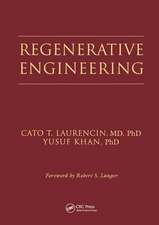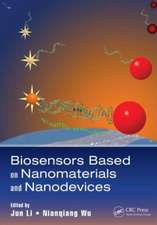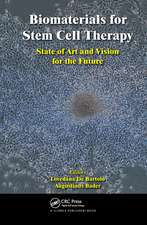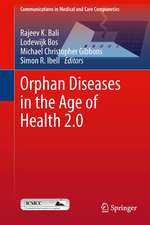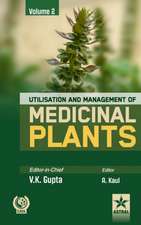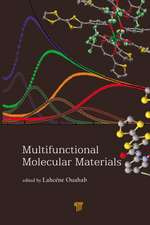The Metabolic Pathway Engineering Handbook: Fundamentals
Editat de Christina Smolkeen Limba Engleză Hardback – 28 iul 2009
| Toate formatele și edițiile | Preț | Express |
|---|---|---|
| Paperback (1) | 467.61 lei 6-8 săpt. | |
| CRC Press – 30 aug 2017 | 467.61 lei 6-8 săpt. | |
| Hardback (1) | 1356.19 lei 6-8 săpt. | |
| CRC Press – 28 iul 2009 | 1356.19 lei 6-8 săpt. |
Preț: 1356.19 lei
Preț vechi: 1653.89 lei
-18% Nou
Puncte Express: 2034
Preț estimativ în valută:
259.50€ • 271.67$ • 214.72£
259.50€ • 271.67$ • 214.72£
Carte tipărită la comandă
Livrare economică 05-19 aprilie
Preluare comenzi: 021 569.72.76
Specificații
ISBN-13: 9781439802960
ISBN-10: 1439802963
Pagini: 678
Ilustrații: 125 b/w images, 4 color images, 79 tables and 488
Dimensiuni: 178 x 254 x 38 mm
Greutate: 1.29 kg
Ediția:New.
Editura: CRC Press
Colecția CRC Press
Locul publicării:Boca Raton, United States
ISBN-10: 1439802963
Pagini: 678
Ilustrații: 125 b/w images, 4 color images, 79 tables and 488
Dimensiuni: 178 x 254 x 38 mm
Greutate: 1.29 kg
Ediția:New.
Editura: CRC Press
Colecția CRC Press
Locul publicării:Boca Raton, United States
Public țintă
Biomedical engineers, researchers and advanced student across all the biological sciences including genetics, toxicology, pharmacology, natural product development.Cuprins
Volume I. Introduction and Preface to Handbook. Cellular Metabolism. Balances and Reaction Models. Regulation of Metabolic Pathways. Modeling Tools for Metabolic Engineering. Developing Appropriate Hosts for Metabolic Engineering.
Descriere
The Metabolic Pathway Engineering Handbook: Fundamentals provides an overview of metabolic pathway engineering with a look towards the future. It discusses cellular metabolism, including transport processes inside the cell and energy generating reactions, as well as rare metabolic conversions. This volume also explores balances and reaction models, the regulation of metabolic pathways, and genome scale and multiscale modeling tools. In addition, it covers the development of appropriate hosts for metabolic engineering, including the use of Escherichia coli, Bacillus subtilis, Streptomyces, yeast, filamentous fungi, and mammalian cells using cell culture.


